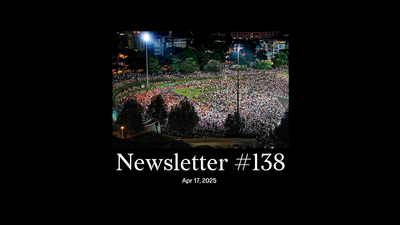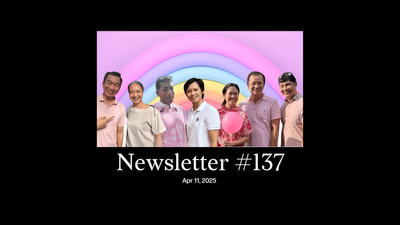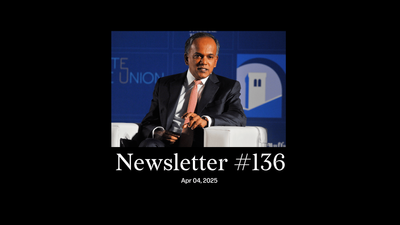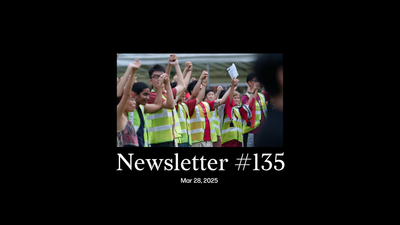Dear reader,
We have two very different pieces out today!
“Pricing HDBs fairly: alternative views should be encouraged, not censored”, by Bobby Jayaraman, is a short commentary, outside the paywall, on the perceived government censorship against Yeoh Lam Keong, a former chief economist at GIC.
“On her scent”, by Damien Thow Xin Wei, is about one person’s pandemic search for the foods and smells that remind him of home, and specifically of his grandmother. It’s the sort of soulful, multi-layered narrative that literary magazines like ours should be cut out to do. There were moments reading it when I felt melancholy; others when I started salivating.
Bobby’s urgent narrative will grab you from your seat; Damien’s lyricism will offer you company as you sink into it.
Away from the joy of seeing the team getting those two done, it’s actually been a slightly depressing week for those of us in the media.
There was the news that Yahoo! has retrenched much of its editorial staff here. Yahoo! is a daily news site that, to me, always occupied a slightly unique niche in Singapore. It was far more independent than the mainstream, and usually offered more depth, colour and originality than other alternative sites, many of whom trade in news aggregation and “churnalism”.
Good writers like Alan Soon (now at Splice), Jeanette Tan (The Business Times) and Nicholas Yong (just laid off) are Yahoo! alumni. Among other reasons to mourn Yahoo!, it seems like Singapore has lost a good training ground.
Then there were three quite awful instances of censorship. Each speaks to a very specific problem in society.
First, the Ministry of Communications and Information (MCI) effectively cut the permit of Vogue Singapore from a year to six months, for apparently breaching guidelines around “...nudity and content that promoted non-traditional families."
It didn’t specify what the offending pieces of content were. It also comes suspiciously soon after Vogue Singapore irritated the Ministry of Home Affairs (MHA) by publishing a story on three activists in Singapore. MHA, in a rebuttal whose staccato-like style bears the hallmark of its minister K Shanmugam, accused the print magazine of “seeking to glamourise campaigners against the death penalty.” (Glamourise away, I say.)
It’s worth mentioning that MCI doesn’t govern Jom the same way it does Yahoo! and Vogue Singapore. The former was a daily news site of sufficient size, which puts it under the government’s licensing regime. The latter is a print magazine, for which the rules are different from online mags. (Our newsletter #1 explained SG media regulation in more detail.)
Put another way, online magazines like Jom and Rice can and will publish apparently risqué content, for instance on “non-traditional families”, with more freedom than those in print. It’s not clear to me that this format segmentation makes sense in a society with such broad online penetration. Do Singaporean conservatives just surround themselves with print and imagine a world without the internet?
As silly is the effective banning of “#LookAtMe”, a new film by Ken Kwek, about a teenage boy who goes to prison for “wounding religious feelings” after uploading an incendiary video in response to a megachurch pastor’s homophobic sermon. I haven’t seen the film but its premise speaks to the potential of all great art: creating the space for meditations and conversations that can heal divides and propel society forward.
That the government instead thinks the film will “cause enmity and social division” speaks to its continuing lack of trust in Singaporeans, in its self-absorbed belief that without its aristocratic puppeteering the whole stage will collapse.
A similar sentiment drives its continued reliance on the Protection from Online Falsehoods and Manipulation Act (POFMA) to shut down views it doesn’t like. There is a general sense that last week’s use was by far the most egregious.
Yeoh suggested an alternative way to account for and price HDB flats, given how unaffordable they’ve become for many. Rather than debate the merits of his argument, the government hit him with a POFMA order. (Read Bobby’s piece for more detail.)
Anecdotal evidence, including my scanning of social media, suggests that public faith in POFMA, even among some party loyalists, is now at an all-time low. The law is actually meant to counter lies and disinformation—a scourge of society—and yet its perceived abuse has dampened its effectiveness.
Shame.
Best wishes,
Sudhir Vadaketh
Editor-in-chief, Jom
Further reading
“POFMA: How is Singapore using its anti fake news law?” by Teo Kai Xiang, is the best database and analysis of the issue.
If you've enjoyed our newsletter, please scroll to the bottom of this page to sign up to receive them direct in your inbox.







